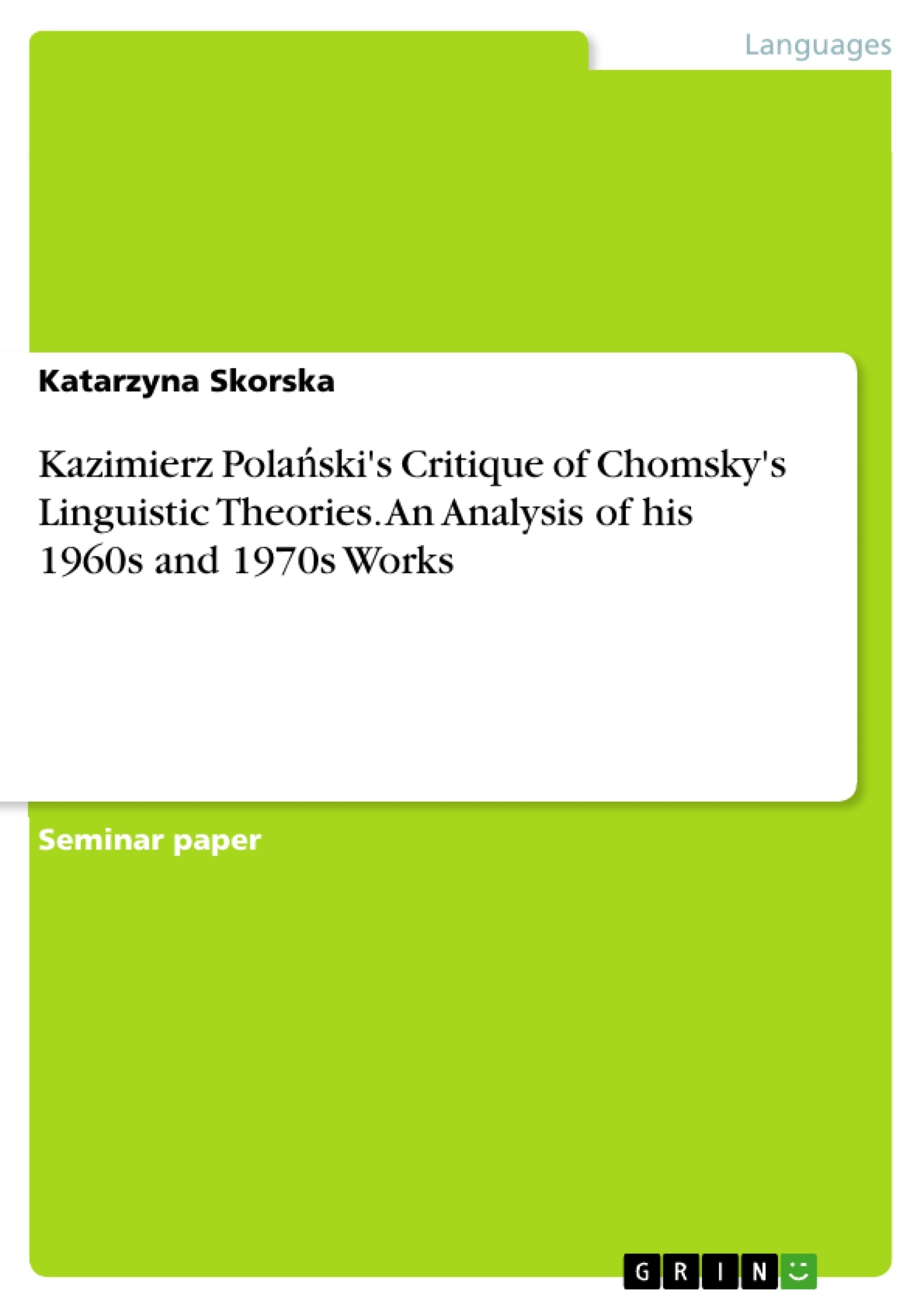This study aims to assess Kazimierz Polański’s attitude toward Chomsky’s linguistic ideas by analyzing how he incorporates Chomsky’s theories into his research and which concepts he mentions and adopts. Three of Polański’s works will be analyzed: his 1966 paper “Gramatyki generatywne a metoda transformacyjna,” his 1967 book “Składnia zdania złożonego w języku górnołużyckim,” which is considered the first Polish transformational-generative study, and his later English paper “The Place of Generative Grammar in Present-Day Linguistics” from 1970.
Inhaltsverzeichnis (Table of Contents)
- Introduction
- Research Objectives
- The pioneer Kazimierz Polański, working in a totalitarian time
- Why was Chomsky's Transformational-Generative Grammar so influential?
- Polański adaptation and critique of Chomsky's ideas
- “Gramatyki generatywne a metoda transformacyjna” (1966)
- “Składnia zdania złożonego w języku górnołużyckim” (1967)
- “The Place of Generative Grammar in present day linguistics” (1970)
Zielsetzung und Themenschwerpunkte (Objectives and Key Themes)
This study analyzes Kazimierz Polański's engagement with Noam Chomsky's transformational-generative grammar, focusing on how Polański integrated these theories into his research within the context of Poland under communist rule. The study examines three of Polański's works to understand his approach and the challenges faced in disseminating Western linguistic theories in Eastern Europe during the Cold War.
- Kazimierz Polański's reception and adaptation of Chomsky's ideas.
- The challenges of disseminating Western linguistic theories in Eastern Europe during the Cold War.
- The influence of political ideology on linguistic research in Poland.
- The development and application of transformational-generative grammar in Slavic linguistics.
- The cross-cultural exchange of linguistic theories between East and West.
Zusammenfassung der Kapitel (Chapter Summaries)
Introduction: This chapter introduces Kazimierz Polański and his pioneering role in bringing transformational-generative grammar to Polish linguistics during the Cold War era.
Research Objectives: This chapter outlines the study's aims, focusing on analyzing Polański's three key works to understand his engagement with Chomsky's theories and the broader context of linguistic exchange between East and West.
The pioneer Kazimierz Polański, working in a totalitarian time: This chapter provides biographical information on Kazimierz Polański, highlighting his academic achievements and the political climate in which he worked. It also touches on the challenges faced by Polish linguists in accessing and adopting Western intellectual trends.
Why was Chomsky's Transformational-Generative Grammar so influential?: This chapter discusses the impact and widespread influence of Chomsky's transformational-generative grammar on the field of linguistics.
Polański adaptation and critique of Chomsky's ideas: This chapter will provide an overview of Polański's three selected works, briefly discussing their central arguments and contributions without revealing specific details or conclusions.
Schlüsselwörter (Keywords)
Transformational-Generative Grammar, Kazimierz Polański, Noam Chomsky, Slavic Linguistics, Cold War, Eastern Europe, Poland, Linguistic Theory, Political Ideology, Intellectual Exchange.
- Arbeit zitieren
- Katarzyna Skorska (Autor:in), 2024, Kazimierz Polański's Critique of Chomsky's Linguistic Theories. An Analysis of his 1960s and 1970s Works, München, GRIN Verlag, https://www.grin.com/document/1512138



